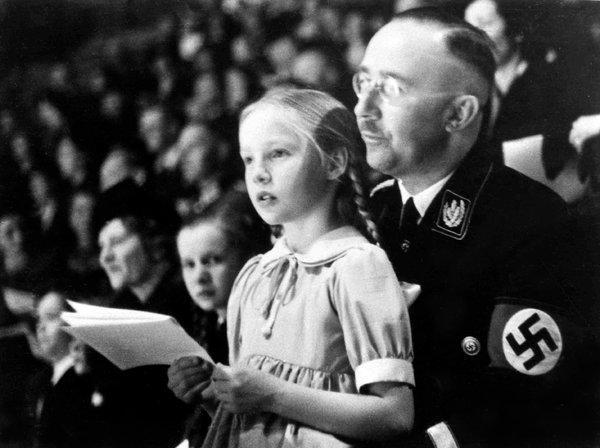Nobody gets to choose their parents. In many cases, everything turns out well. But some people have the misfortune to be born to tyrants or infamous figures from history. They have to live with their family name for the rest of their lives, for good or bad. In some cases, the children of dictators of war criminals have done all they can to break with their dark past. But sometimes they go the other way, refusing to condemn their parents, no matter what atrocities they might have committed.
So, from the doting daughters of Nazi mass murderers and the pampered sons of African tyrants to the offspring who have tried to make amends for their dark past, here we have 20 cases of children struggling to live with infamous relatives:

1. Edda Mussolini loved her infamous dictator father, until he had her husband shot
Beautiful, graceful, athletic and well-spoken: Edda Mussolini was presented as the ideal Fascist woman. Adding to her propaganda value, of course, was the fact that she was the daughter of the ‘Duce’ or leader of Fascist Italy, Benito Mussolini. However, their relationship went from being one of mutual admiration to being strained and then broken completely.
Edda was born to Mussolini and Rachele Guidi in 1910. Her parents did not marry for another 15 years, by which point her father was making a name for himself as a political agitator. By 1922, he was Prime Minister and three years later, Dictator. Along with her brothers and sisters, Edda moved to Rome. She frequently appeared in magazine articles and newspaper pieces, both at home and abroad, and was presented as the perfect young woman for a new Italy. Away from the cameras, however, she was a rebel, drinking and fraternizing with ‘undesirable men’.
When she finally fell in love and married in 1930, Mussolini was extremely relieved. She took Count Ciano as her husband. He was an aristocrat and the Duce made him an ambassador. Edda followed him to China and then back to Rome. Even though he was serially unfaithful (Edda too took lovers outside her marriage), she backed him when he and the Duce came to loggerheads: Mussolini wanted to support Hitler in the upcoming war, Ciano cautioned against it. Italy did end up allying itself with Nazi Germany, and Mussolini never forgot this perceived betrayal.
After Mussolini came to power for the second time as a puppet ruler of the Nazis, he had Ciano executed for treason, despite his own daughter begging him to show mercy. She denounced her father and the name Mussolini and escaped to Switzerland. After the war, she was briefly interred before she moved back to Rome to pen her memoirs. Aside from her writing, she carried on working in the fashion industry until her death in 1995.

